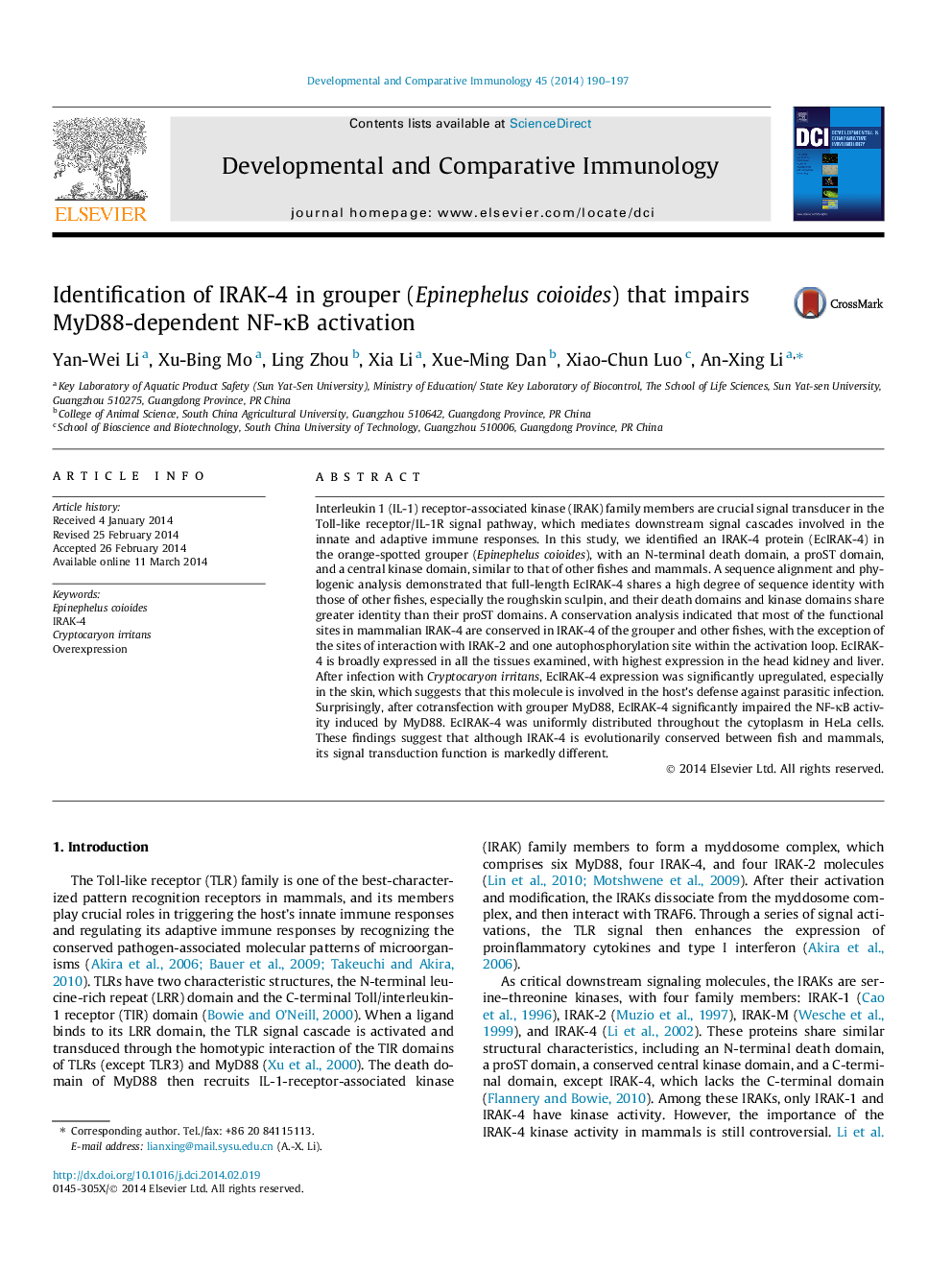| کد مقاله | کد نشریه | سال انتشار | مقاله انگلیسی | نسخه تمام متن |
|---|---|---|---|---|
| 2429193 | 1106482 | 2014 | 8 صفحه PDF | دانلود رایگان |

• Grouper IRAK-4 shares high sequence identity with those of other fishes.
• Most functionally important sites in mammal IRAK-4 are conserved in fish IRAK-4.
• EcIRAK-4 expression is up-regulated by Cryptocaryon irritant infection.
• EcIRAK-4 significantly impairs the NF-κB activity induced by grouper MyD88.
• EcIRAK-4 is uniformly distributed throughout the cytoplasm.
Interleukin 1 (IL-1) receptor-associated kinase (IRAK) family members are crucial signal transducer in the Toll-like receptor/IL-1R signal pathway, which mediates downstream signal cascades involved in the innate and adaptive immune responses. In this study, we identified an IRAK-4 protein (EcIRAK-4) in the orange-spotted grouper (Epinephelus coioides), with an N-terminal death domain, a proST domain, and a central kinase domain, similar to that of other fishes and mammals. A sequence alignment and phylogenic analysis demonstrated that full-length EcIRAK-4 shares a high degree of sequence identity with those of other fishes, especially the roughskin sculpin, and their death domains and kinase domains share greater identity than their proST domains. A conservation analysis indicated that most of the functional sites in mammalian IRAK-4 are conserved in IRAK-4 of the grouper and other fishes, with the exception of the sites of interaction with IRAK-2 and one autophosphorylation site within the activation loop. EcIRAK-4 is broadly expressed in all the tissues examined, with highest expression in the head kidney and liver. After infection with Cryptocaryon irritans, EcIRAK-4 expression was significantly upregulated, especially in the skin, which suggests that this molecule is involved in the host’s defense against parasitic infection. Surprisingly, after cotransfection with grouper MyD88, EcIRAK-4 significantly impaired the NF-κB activity induced by MyD88. EcIRAK-4 was uniformly distributed throughout the cytoplasm in HeLa cells. These findings suggest that although IRAK-4 is evolutionarily conserved between fish and mammals, its signal transduction function is markedly different.
Journal: Developmental & Comparative Immunology - Volume 45, Issue 1, July 2014, Pages 190–197